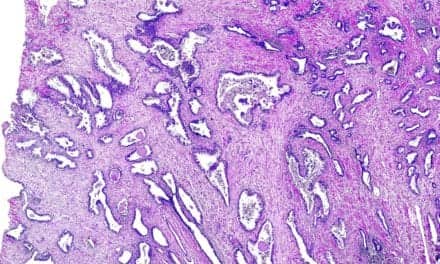Philadelphia-based Proscia and Ibex Medical Analytics, Tel Aviv, Israel, have entered into a strategic partnership to support pathologists in detecting prostate cancer, the second leading cause of cancer death among men in the United States. Through the collaboration, the partners will advance the use of computationally enabled workflows leveraging AI, which drive accuracy, efficiency, and quality gains in routine pathology diagnosis.
The standard of care for diagnosing cancer is the pathologist’s assessment of tissue biopsies using the microscope. Diagnosing prostate cancer from a tissue biopsy is challenging given that it requires the pathologist to review a large number of samples to find tumor foci that are often subtle, minute, and dependent on a qualitative grading system to assess disease severity. This review process can lead to an increased utilization of pathologists, missed diagnoses, reliance on ancillary tests, and reduced confidence in treatment decisions.
Proscia and Ibex have joined forces to deliver a unified software solution that powers AI-enabled workflows for prostate cancer diagnosis, helping laboratories to drive meaningful productivity and quality gains. The joint product integration will bring together Ibex’s Galen Prostate solution with Proscia’s Concentriq image and data management platform, introducing AI-powered triaging, cancer detection, and grading of prostate core needle biopsies into routine workflows. Galen Prostate is already deployed in laboratories worldwide and supports pathologists with real-time quality control by alerting on misdiagnosed and misgraded cancers.
“As prostate cancer impacts millions of patients each year, and as pathologists face ever-increasing challenges, it is paramount that we empower laboratories with clinical-grade AI solutions that provide accurate, timely diagnosis and ultimately improve patient outcomes,” says Joseph Mossel, CEO and Co-founder of Ibex Medical Analytics. “We are excited to partner with Proscia to accelerate development and rollout of end-to-end digital pathology solutions that utilize the full potential of our AI technology.”
“Computational pathology is poised to make the biggest impact on the field since the introduction of the microscope over a century ago,” says David West, CEO of Proscia. “Our partnership with Ibex helps laboratories to capitalize on this promise by seamlessly deploying a solution backed by great science and proven customer success into workflows at scale.”
For more information, visit Proscia and Ibex Medical Analytics.
Featured image: PC-3 human prostate cancer cells, stained with Coomassie blue, under differential interference contrast microscope.





